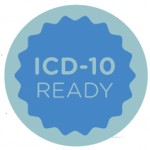
In 2012, the healthcare industry applauded when the Centers for Medicare and Medicaid Services (CMS) finalized a rule to move the deadline to implement the Tenth Revision of the International Classification of Diseases (ICD-10) from October 1, 2013, to October 1, 2014. The new ICD-10 code set—representing a substantial increase in diagnosis codes—seems to be rolling full steam ahead, with only 18 months before the curtain lifts to bill these new codes. Will that timing stand?
Transitioning to ICD-10 will have a major impact on the entire healthcare industry. This undertaking will be significant for all providers, payers, and system vendors, requiring planning and preparation across all organizations. It will also affect an array of practice management systems, including electronic medical records and practice management systems. In response to the effects of ICD-10 implementation on providers, the American Medical Association (AMA) passed a resolution at its November 2012 meeting to skip the implementation of ICD-10 and move directly to ICD-11, which is scheduled to release its beta phase in 2015. The ACR is cognizant of the financial impact that ICD-10 will have on your practice. That is why we signed the AMA resolution to stop the implementation as well as the letter that was sent to CMS about this decision.
If a delay is not enacted by Congress, the curtain will continue to rise on compliance. Will you be ready? A smooth, successful transition to ICD-10 without any negative consequence requires a well-planned and well-managed implementation process. Proper planning and preparation is critical to controlling your ICD-10 investment and moving beyond compliance to financial success.
Discuss Implementation with Staff and Vendors
Implementing ICD-10 will require instituting system changes and training staff. Your staff will need to understand the new code set, and your vendors will need to verify that your system is ready to accept the new codes and transmit them properly for payment. Where should you begin? You will need help from your practice administrator and your staff to organize communication with both internal and external stakeholders.
Working with Your Vendors
You and your staff will need to identify all the systems in your practice that will be affected by the implementation of ICD-10 codes, including patient registration, data management registries (e.g., Rheumatology Clinical Registry), electronic health records, clinical lab systems, and practice management systems for eligibility and/or prior authorization.
This task will require you and your practice administrator to talk with each of your vendors and find out where they are with system compliance for ICD-10. If you have multiple systems that require upgrading, you will need to coordinate with each vendor and sequence the upgrades to minimize any downtime in the practice. Below is a checklist for your practice when implementing your system changes for ICD-10:

